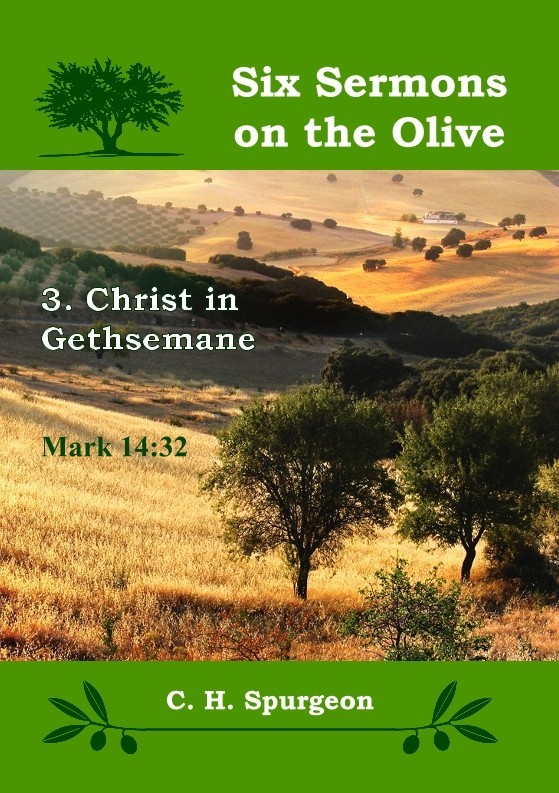
Six Sermons on the Olive - 3. Christ in Gethsemane
By Charles Spurgeon
Extract
Six Sermons on the Olive
C. H. Spurgeon
3. Christ in Gethsemane
“And they came to a place which was named Gethsemane” Mark 14:32.
Our Lord had been sitting at the table of happy fellowship with his disciples, talking to them, in a very solemn and impressive manner; he then delivered those choice discourses which are recorded by John, and offered that wonderful prayer which deserves ever to be called “The Lord’s prayer.” Knowing all that was to befall him, he left the upper room, with his disciples, and started to go to his usual place of quiet retreat, “a place which was named Gethsemane.” You can easily picture their descent into the street. The moon was at the full on the paschal night, and it was very cold, for we read that the high priest’s servants had kindled a fire, and warmed themselves, because it was cold. As Jesus walked along the narrow streets of Jerusalem, he doubtless still spake to his disciples in calm and helpful tones, and ere long he came to the brook Kedron, over which David passed when Absalom stole away the hearts of the people from his father. So, now, “great David’s greater Son” must go the same way to the olive garden where he had often been before with his disciples. It was called Gethsemane, “the olive-press.” As we think of Christ in Gethsemane, I want you who love him not only to adorer him, but to learn to imitate him, so that, when you are called to “drink of his cup,” and to be baptized with the baptism wherewith he was baptized, you may behave as his true followers should, and come forth from your conflict victorious as he came forth from his. At the very outset, there is one fact that I wish you to observe very particularly. Sudden changes from joy to grief have produced extraordinary results in those who have been affected by them. We have often read or heard of persons whose hair has turned white in a single night; such an extreme convulsion of mind has happened to them that they have seemed to be hurried forward into premature old age, at least in appearance, if not in fact. Many have …